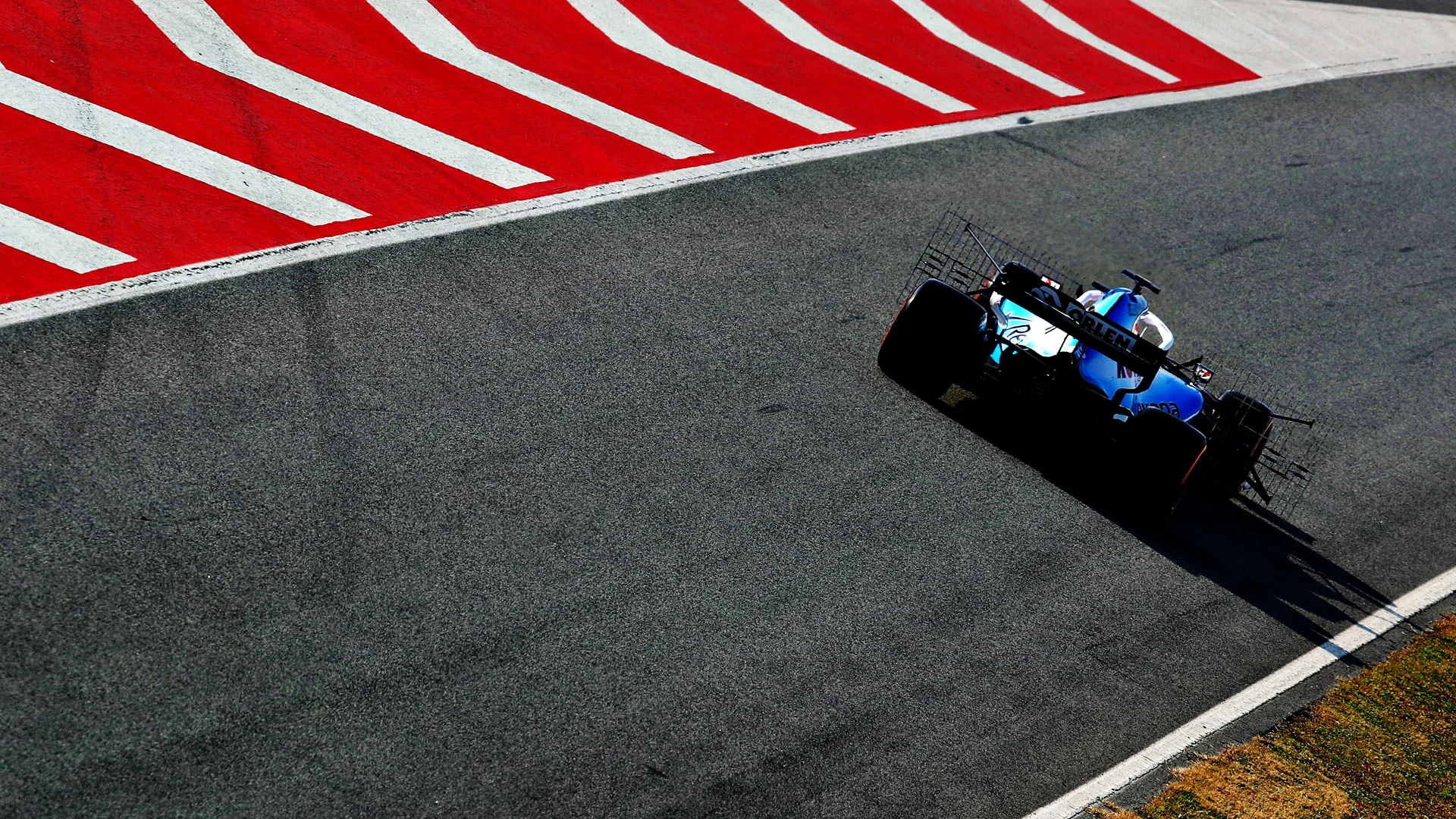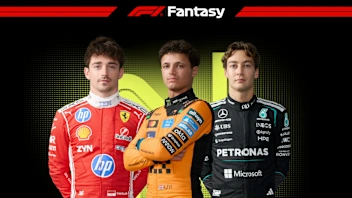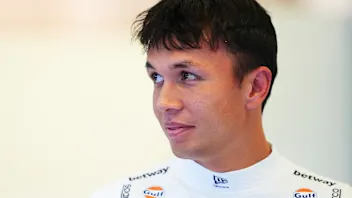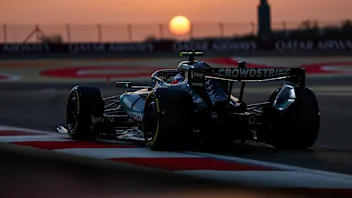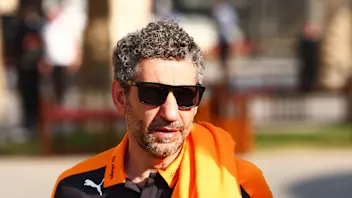You’ve ended last season on a high, trained hard all winter, and turned up to pre-season testing to find that your new car’s not quite the beast you were hoping for. It’s a tough moment for any Formula 1 driver. But how do you tell the team about it, how do you tell the media about it, and what can you realistically do to salvage your season? Former F1 racer Jolyon Palmer gives us the driver’s eye view…
For a driver, it's immensely disappointing when you leave testing and you know you're in for a tough season. Williams last year is a perfect example. For George Russell and Robert Kubica, it must have been difficult, because with the optimism that comes before you turn a wheel, it’s then a crushing blow when you realise that the season could actually be a real slog.
WATCH: What does Mercedes' 'DAS' steering wheel do? – Jolyon Palmer's Insight
As a driver, you’ll sometimes have an idea that you're not expecting a huge amount from the car. Even before testing, a driver will see some wind tunnel or aero map numbers, and they might hear a moan or groan from an engineer or two. But even then, everyone comes to testing with optimism, just hoping they can hit the track and it's going to be good.
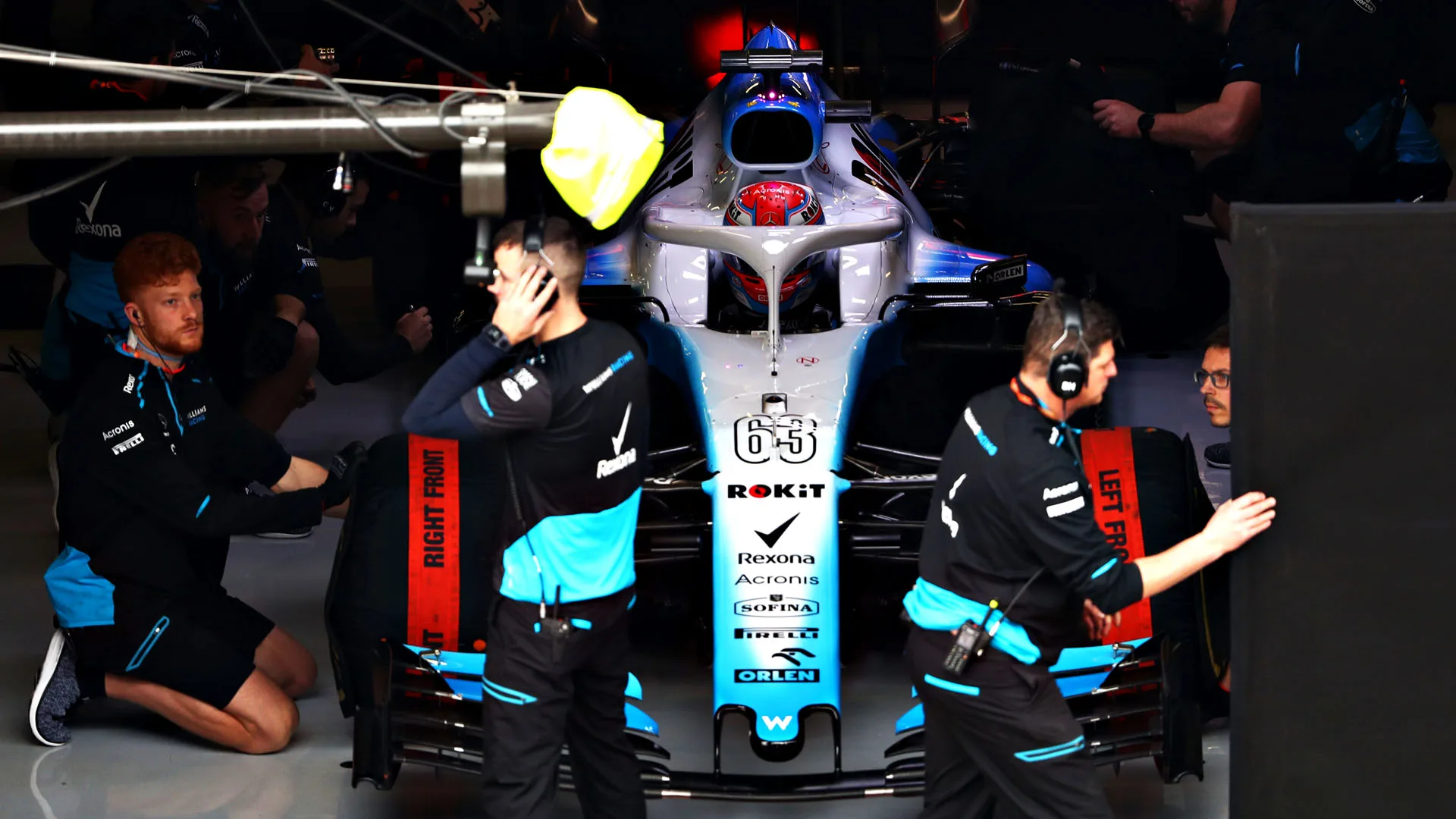
‘You have to be blunt with the team’
If you get in the car and immediately there's something not right – say if the brakes are all over the place with inconsistent locking on the fronts and rears, and you can’t get any confidence – then there's obviously a moment early on in a test where you have to say: 'We need to fix something that could be a potentially serious problem’.
READ MORE: Rob Smedley on what teams do on Day 1 of pre-season testing
Of course, you're aware that the people in your team have worked hard for this, but you can't hold back. You have to be fairly blunt, especially now that there are only six days of pre-season testing. F1's a cut-throat world, so yes, you've got to say some positives, but if something's bad, you've got to say it's bad – there’s no point trying to be nice about it.
My father taught me: ‘Don’t say the car is s***’
When I was young, my father – who was a test driver with McLaren and Williams – taught me, 'Don't say the car is s***'. You need to say, 'I don't like it when I'm 50% throttle, I'm getting a load of wheelspin and torque spike'. If you can give that level of feedback, then the engineers can look very quickly through it and say, 'Yes, we can see that, we can fix it like this'. Don't say a sweeping comment, because that just pisses off the engineers. You need to be constructive, and give them precise information so they can find the problem – and hopefully the solution.
My year as a reserve driver also allowed me watch what the race drivers did – and I quickly learned to take the good from them, and ignore the bad…
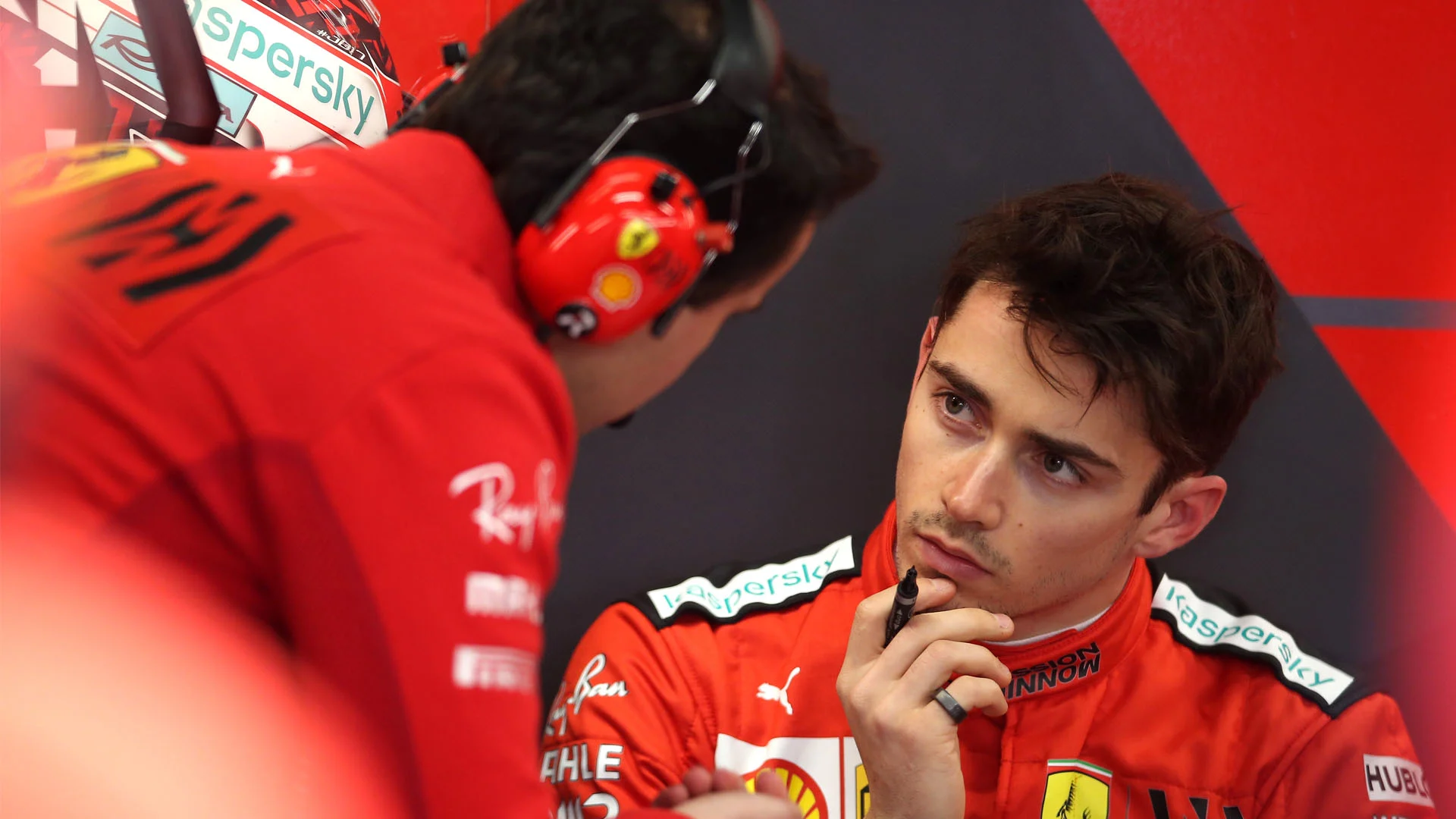
Fixing the problem
Sometimes there can be quick fixes. If it's a simple driveability issue on the engine, sometimes you can just use a different engine map and you're away.
Sometimes, though, the problem is more mechanical, and although you can put a plaster on the problem, it’s still there. So if you have an issue with rear stability, for example, that will then go back to the factory as one of the things to come out of testing, and that might then be the course of development for the next two months.
But at that point, you're in February, and the European races in June and July – where updates tend to come – seem a long way away. You really want to be quick in Melbourne, and the thought that you might get an upgrade by Silverstone is not that beneficial to you.

Sometimes the solution is to alter your driving style. When you do have a car with an issue, it's actually quite natural that there are better ways to drive around the problem instead of masking it with set-up changes. Maybe it’s not being as hard on the brakes with peak braking, or not doing something that puts pitch into the car.
There are some subtle techniques you can use, and that's what your performance engineer will be going through, to see what you can do to get the most out of the car, as well as changing the car to fit you. It's trying to get it into harmony. You also always try to learn from what your team mate's doing.
READ MORE: 7 of the cleverest deceptions in F1 testing history
Facing the press
When you’re struggling with a car, there’s a difference in approach when you're having a debrief within your team and when you’re facing the media. As I said, in a debrief, you have to be blunt and honest, and say exactly what you're feeling.
But when you go to the media, you've got to be on your guard. You'll see almost everyone being positive, especially early on in the test, not least because you’ve probably got 500-plus people back at the factory looking at your quotes. You want to keep their morale up, and that’s a way of doing it.
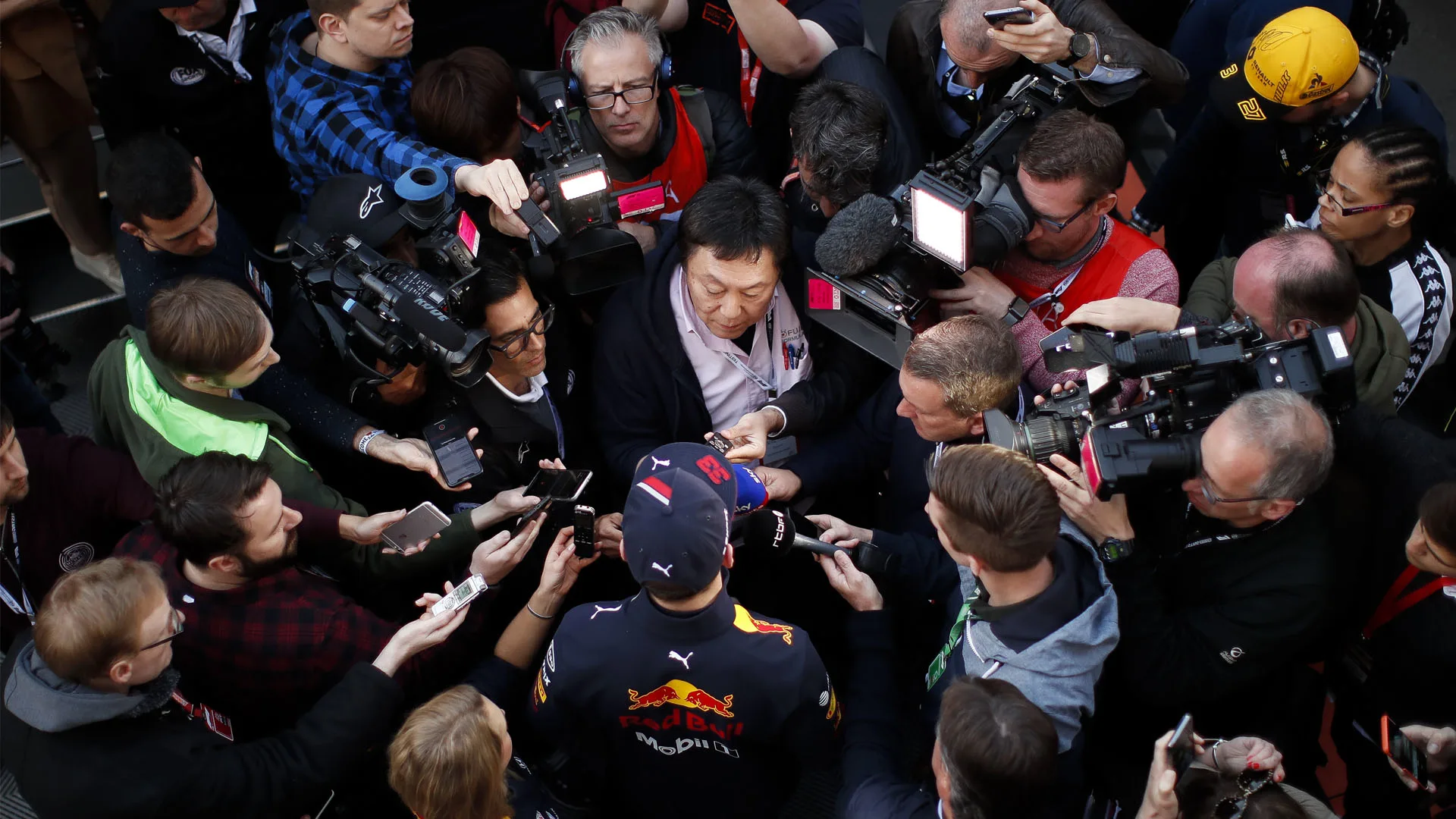
You also want to demonstrate positivity to the outside world, to show that you're going to have a good year. You want the sponsors to be happy. You basically want everyone to be positive, and you can still hope, if you’re having issues, that other people are having issues too – and you can fix yours better than they can fix theirs!
There's nothing else you can do. You have to work hard, you've still got a job to do and you've got to rally the troops, because you're the lynchpin of the whole team.
LIVE TIMING – full coverage of Formula 1 Pre-Season Testing 2020
Next Up

